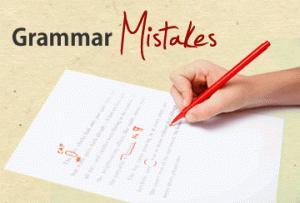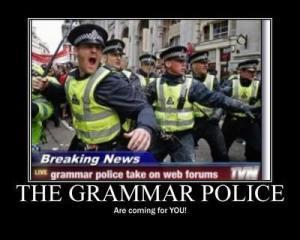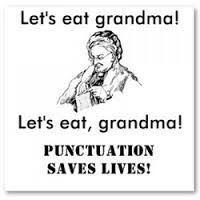There are times when I wish my mother tongue was something other than English and I had to learn English from scratch. That way I would know my verbs from adverbs, my nouns from pronouns and how to construct a grammatically correct sentence. I don’t know about you, but I have always been acutely aware of my lack of knowledge when it comes to English grammar. Even as I start to write this post, I am wondering if anyone reading it might be thinking that I have used prepositions and subordinate conjunctions in the wrong place. No, I don’t know what they are either! I just write as I speak the language I have grown up with over the last 63 years.

About 20 years ago I joined an adult education evening class at my local Sixth form college and took Adult English GCE. The majority of the syllabus was literature based which was most enjoyable and I discovered the joy of writing. At that time, I was surprised how the written word had evolved since I left school. For example, we were told not to use a comma in front of the word and ( ,and ) as it was unnecessary. I never did get around to reading “Eats, Shoots and Leaves” written by Lynne Truss and published in 2003. Maybe if I had read it I would not be struggling now. 10 years later I worked for someone who abhorred capital letters apart from the beginning of a sentence. This threw me into a complete flummox trying to get things right, I had spent years, as a legal secretary, typing the Court, so to downgrade it to the court just didn’t feel right.

I have muddled along quite happily over the years, accepting corrections from bosses, although I wasn’t entirely sure they were correct, and (see I still use the unnecessary comma) in the last 4 years writing my blog as if I was talking to you, without any hesitation as to whether the Grammar Police were going to come at me with a big stick.

I am very aware that everything evolves over the years, but last week something happened at work that made me wonder, even question, whether it is changing for the better. We have been given a “Writing style guide” to be used as a reference tool to ensure that communications are presented in a consistent style. It went on to explain that spelling and punctuation changes as the language evolves. There is a list of words to be avoided “Jargon”, redundant phrases and how to simplify common phrases such as using ‘about’ instead of ‘in relation to’ and ‘from or for’ instead of ‘from the point of view of’. We are shown how to use bullet points, capital letters and abbreviations. It was at abbreviations that was one hurdle I found a bit too high. The style guide goes on to explain that abbreviations pronounced as words are written in sentence case, giving the example of NATO should be Nato. Surely this is WRONG WRONG WRONG!!!
Feeling strongly about this, I took it up with our Marketing Department, sorry that should be marketing department (lower case), and received a reply that they were “delighted to see that I was absorbing the writing style”, explaining acronyms can be presented in both forms but a consistent approach was important and provided me with a link to the Guardian and Observer style guide. I am not a Guardian reader but this was interesting and I learned that the ubiquitous comma can be used in front of the word ‘and’ and it is known as the Oxford comma:
Oxford comma – a comma before the final “and” in lists: straightforward ones (he ate ham, eggs and chips) do not need one, but sometimes it can help the reader (he ate cereal, kippers, bacon, eggs, toast and marmalade, and tea), and sometimes it is essential:
compare
I dedicate this book to my parents, Martin Amis, and JK Rowling
with
I dedicate this book to my parents, Martin Amis and JK Rowling
All is not lost, fortunately.
Meanwhile, I will continue to write as though I am speaking to you, whether it is right or wrong. If I ponder too much over correctness it will slow down my process of thought. I will remember not to use capital letters for the seasons which is something I always get wrong, and I will continue to stumble over the use of which and that – “This is the house that Jack built” “This house, which Jack built, is now falling down.”
What is your take on all of this? I leave you to think about how English has changed having read my post which is probably bursting with grammatical errors.


